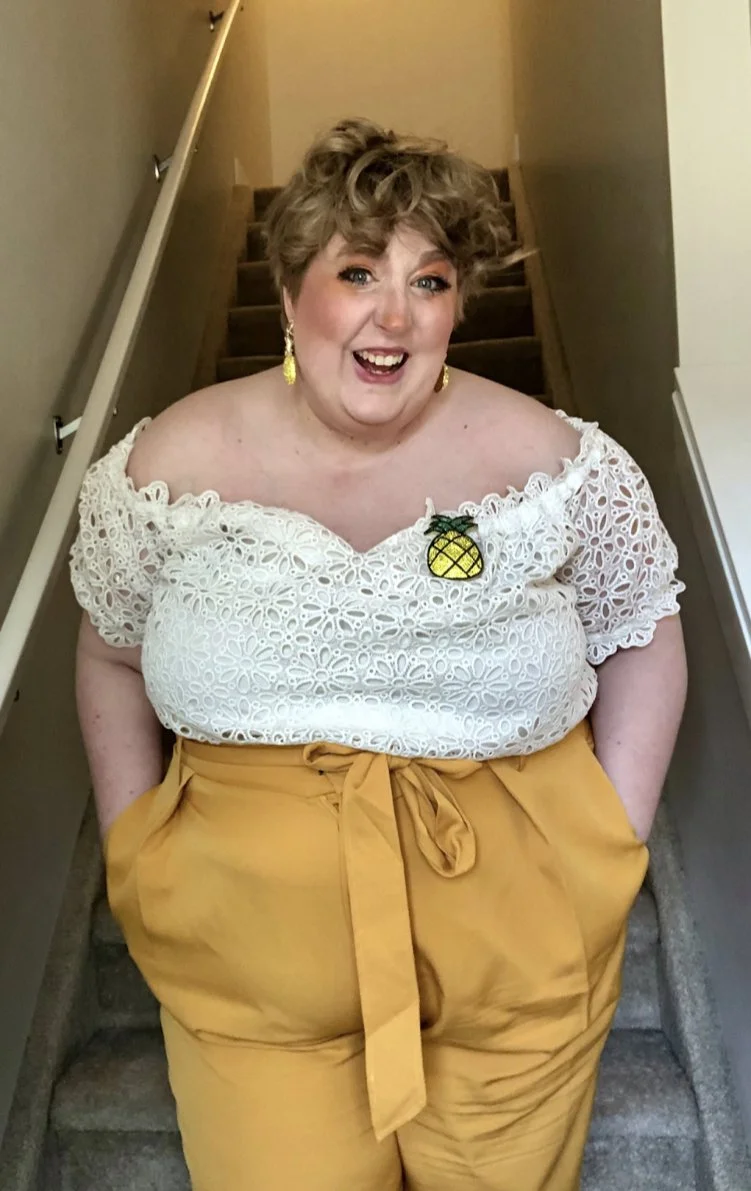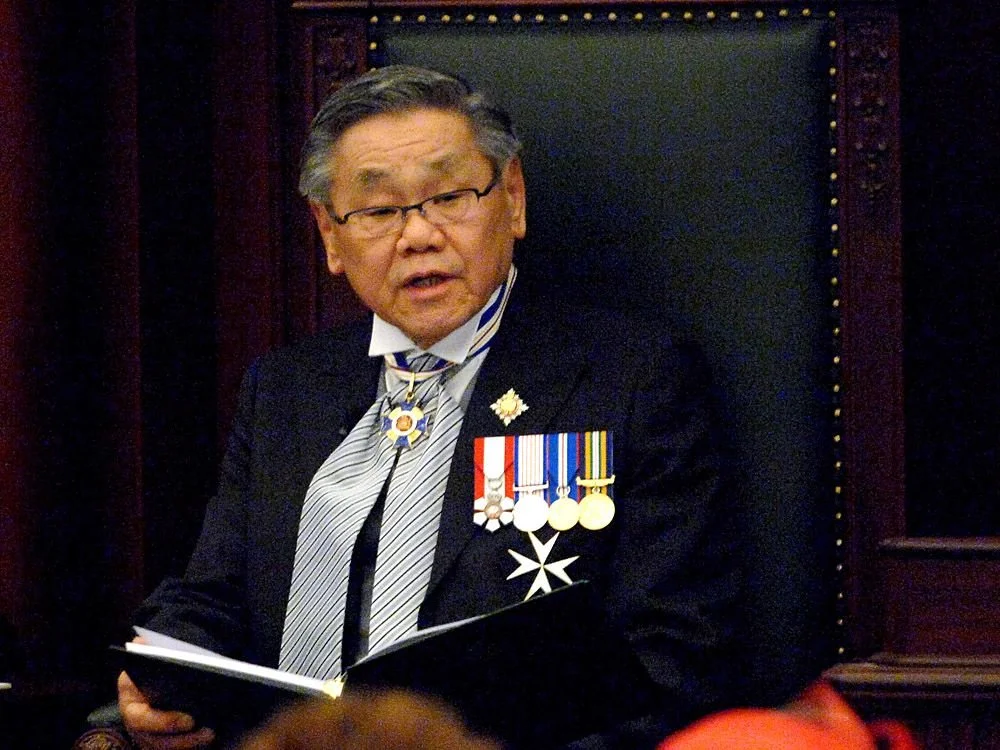Playwright Profiles: Ellen Chorley
Ellen Chorley (she/her) is a theatre artist, playwright, producer and arts educator. I had the pleasure of working with her last year in the playwriting workshop Theatre Blitz and once again had the pleasure of talking to her to discuss her involvement in Vic’s very own Awakening. See her show Pranksters on May 16 and May 18, 2022
What do you do?
Right now I am the artistic director for Nextfest Arts company. We produce Nextfest which is an 11 day theatre festival at the beginning of June each year. It’s a multi-disciplinary emerging arts festival which showcases work from artists from every discipline in the first 10 years of their career. So there’s a high school section and then it's mostly folks who are between the ages of 20 and 30 but really it could be any age. I also teach acting and playwriting at the Citadel through Foote Theater School. I’m the Box Office Manager for Northern Lights Theater. I also work independently writing plays both for commission and for myself. Occasionally I will act but I don’t do that as much as I used to.
How did you get involved in theatre and playwriting?
I’ve always loved performing and I started out at a very young age. I started with ballet but I learned that that was a very specific body type and I didn’t have that boy type. There’s this line in A Chorus Line that’s like “I realized I could talk too!” and I kind of had that moment myself. So I started taking acting classes on the side of ballet but it quickly took over. I liked the classes so much I started to help out in the class to pay for the classes. So, I was learning how to be an acting teacher while learning how to act. I went to Ross Sheppard High School here in Edmonton and the theatre community there was very small and the classroom was at the end of the school. When you were leaving the school, then you saw the theatre room. So I think the administration kind of forgot about us and let us do whatever we wanted so we did kind of do whatever we wanted. The cool thing was, we had this teacher who encouraged us to try every single part of theatre. I learned how to build costumes, how to build sets, how to stage manage, lighting design and playwright on top of being an actor. I started writing plays when I was 15-16 and around that time the Citadel, where I was taking acting classes started a teen playwriting program (which is now gone). I did three years of that and I loved it. It was me finding another voice that I didn’t know I had. I went to Grant MacEwan for theatre and when I was there it was a very heavily musical theatre based program and I worked as a musical theatre actor and did a lot of children's theatre. I spent a lot of time between Edmonton and Calgary, sleeping on couches and air mattresses. At the time I was writing a lot as well, I was working with a Calgary based theatre company that is no longer around. It was then that I realized that I liked playwriting the most and started producing my work through the Fringe Festival and Nextfest. I just continued writing and writing and writing, and working with schools and theatre companies and that kind of stuff.
Why playwriting specifically?
When you’re a playwright you truly have a blank page and you get to build this whole universe. I love theatre itself because it’s such a collaborative form: every type of art comes together to make a play. There’s musicality in sound design and the rhythm of the words you use; there’s movement (even if it isn’t dance); there’s the visual element of set and costume and lights. So everything ties together really well but it all ties back to the words of the playwright. I really appreciate how the playwright is contributing the words to a long line of creation. And maybe that’s just because I’m a control freak.
How do you deal with writer’s block?
I know a lot of people feel this way, especially during the pandemic. My writing really slowed down during the pandemic especially because I just didn’t feel like I had anything to write about. So when it comes to writer’s block, I have a couple of ways to deal with it. I’m a big fan of monologues so if I can’t get an idea to go I’ll open a new draft on my computer and write a monologue from the perspective of one of the characters and that usually gets the juices flowing a little bit. Another thing I’ll do is I’ll get out of the office and go for a walk and not think about it so it has time to percolate in my mind. Or I’ll read something completely different, once again, letting those ideas percolate. I think the most helpful thing is really strict deadlines. A set deadline makes me sort of jump past the writer’s block to the writer’s panic. And sometimes I’ll even try to write the worst possible thing I can like “here they will fall in love somehow” just to get past it.
What does your writing process look like?
It changes every time depending on what the project is. But overall, I love research--I’m a huge research nerd-- so often when that spark is happening, that’s when I’ll try to do as much research as I can. And when I’m writing, I’ll always have Google open and I’ll Google the stupidest things-- like names of birds, or when does the sunset in this place, or famous bridges-- just whatever. That’s a huge part of my process though then, depending on the show, sometimes I’ll do a Post-It wall with what happens and when, all in the most general sense. Then I try to get my first draft done as fast as possible because I find that first drafts are where I lose momentum. I love doing rewrites and seventh and ninth drafts but the first draft is often the hardest to get out. So I will devote however long it takes-- around three to five days-- to just get that idea out in a first draft because once it’s on paper its much easier to see where “I hate this” or “this needs to be changed” that kind of thing. Then once it’s on paper I’ll read it out loud to myself, which looks super weird, but it’s really helpful for me. And then I’ll also like to have print outs and do my edits in pen, so I’ll have scrawl everywhere and arrows over three pages and that kind of stuff. When I have all of that I’ll go back into the draft and change it all. I also like to have my friends read things out loud for me so I can hear it and then go from there. Then I eventually get to a point where I’m happy with it and it needs to get submitted.
Are there any kinds of stories that you particularly gravitate towards?
I’m really interested in doing feminist work. I’m really interested in doing work that celebrates body positivity, body neutrality and body sovereignty. As a fat woman it’s really important to me that all bodies are being seen and all body types are on stage. I think a lot of people are afraid of that word: “fat” and I want to start representing that more on stage. As an audience member I think I tend to enjoy stories that are specifically tailored towards a theatrical place. I like to have the theatrical experience that you wouldn’t have if you were watching a movie. I have so much experience creating children’s theatre and creating theatre for children, so I love it when props are [used for other purposes], like when a baguette becomes a sword. I love that magic. Peter and the Starcatcher is one of my favourite plays because they just find stuff and make it something else and I love that theatrical experience. I also really like what I call “time jumps” like when time changes and we’re immediately in another time or place because, basically the actors tell us that’s the case. I actually really like self narration as well, like when the character talks to the audience about themselves like “this is what I’m doing right now” I’m kind of interested in that. I think overall I really like storylines where you know what’s going to happen but you don’t want it to go there. I don’t know if I mentioned it, but my favourite play is Stop Kiss by Diana Son, it’s fantastic. It’s about two seemingly straight women who are roommates who are falling in love with each other. It all leads up to them kissing but you see the aftermath where they get gay bashed, one of them as their head bashed into a brick wall. So you know they’re going to kiss and you want them to kiss because they’re falling in love with each other but you also know what happens after so you don’t want them to kiss. It’s such an emotional place to be, I wept and wept and wept [when I watched it]. For me it seems that something like that can only be done in a theatre, it couldn’t be achieved in a movie the same way.
What’s your advice for young people interested in getting into playwriting and theatre in general?
See theatre! See theatre! Go and see theatre! I know it’s hard during the pandemic. Chefs taste food: we are chefs. Chefs with words and we create like chefs create food as art. Going to see theatre is going to teach you so quickly what you like and don’t like and what you want to create and you’ll feel inspired every time. And, when you see theatre, you’re supporting the theatre that’s already being made.
How would you describe your Awakening show in three words?
Chaos. Pranks. Consequences. {Followed by an evil laugh}
Why is Victoria School the right place for your work?
Vic is super supportive of bringing in artists and that’s super important to me. And the school is radically welcoming at all times, and not just welcoming to artists, but welcoming to students. The vibe that I’ve gotten from being there is so accepting. There are so many students who are ready to come forward with who they are, as they are and tell their stories which is a big part of Awakening and that’s such an exciting thing to be a part of.




